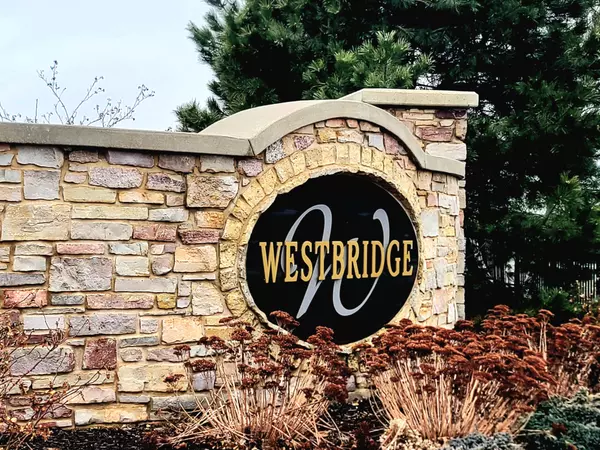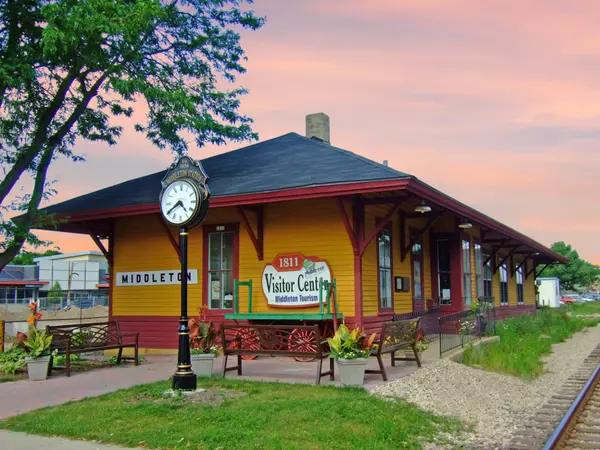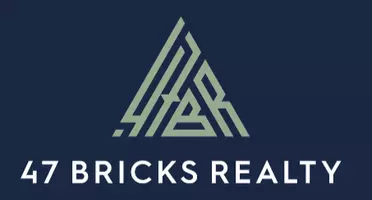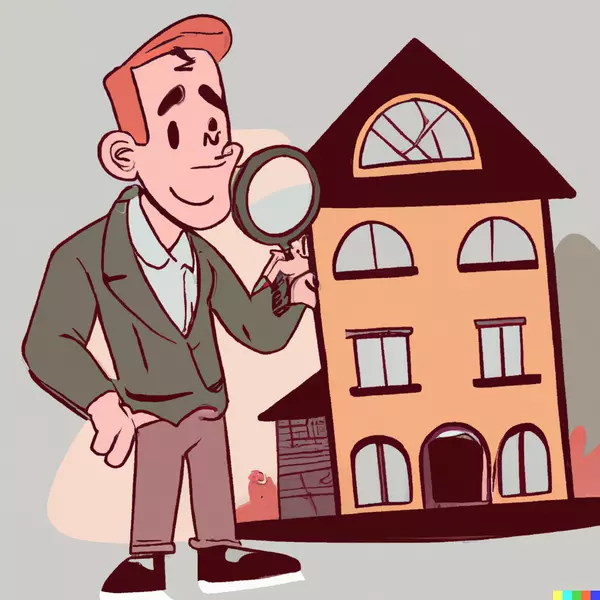
The Importance of a Home Inspection: Protecting Your Investment
Buying a home is one of the most significant investments most people will make in their lifetime. Before signing on the dotted line, it's essential to ensure that the property you're purchasing is in good condition and doesn't come with any unexpected surprises. This is where a home inspection comes in. A home inspection is a comprehensive examination of the property's condition, including the structure, plumbing, electrical, HVAC, and more. The purpose of a home inspection is to identify any potential problems or safety issues and provide the buyer with a detailed report of the property's condition. Here are some of the reasons why a home inspection is so important: Protect Your Investment: A home inspection helps protect your investment by identifying any potential problems before you buy. This can help you negotiate a better price or avoid a property that requires too much work and money. Safety: A home inspection can identify safety issues such as faulty wiring, mold, or structural damage. This information can help you make an informed decision about whether to proceed with the purchase or walk away. Maintenance: A home inspection report can provide valuable information about the property's maintenance needs. This can help you plan for future repairs or maintenance costs and avoid unexpected expenses. Negotiation: If the home inspection reveals any issues, you can use this information to negotiate with the seller. You may be able to negotiate a lower price or ask the seller to make repairs before closing the deal. Peace of Mind: A home inspection can provide peace of mind knowing that you are making a sound investment. You'll have a better understanding of the property's condition and any potential issues, allowing you to make an informed decision. In conclusion, a home inspection is an essential step in the home buying process. It can help you identify potential problems and make an informed decision about the property's condition. Whether you're a first-time homebuyer or an experienced real estate investor, a home inspection is a wise investment that can save you time, money, and headaches in the long run.
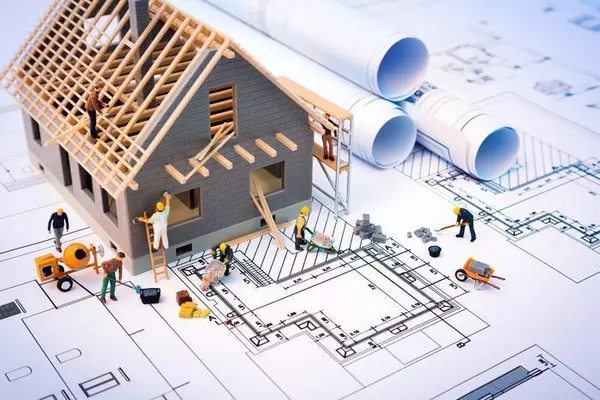
The Benefits of New Construction: Why Building a New Home is Worth the Investment
New construction has numerous benefits for homeowners and communities alike. While there is often a premium to pay for new construction compared to existing homes, many people find the benefits are well worth the cost. Here are some of the key benefits of new construction: Customization: One of the most significant advantages of new construction is the ability to customize the home to your preferences. Buyers can often choose everything from the layout and room sizes to the finishes and fixtures, making it easier to create a home that fits their lifestyle and needs. Energy efficiency: New construction homes are typically built with the latest energy-efficient materials and systems, which can significantly reduce energy costs. This not only saves homeowners money but also helps reduce their carbon footprint and contribute to a more sustainable future. Lower maintenance costs: New construction homes require less maintenance than older homes. All of the major systems, such as HVAC, plumbing, and electrical, are brand new and typically come with warranties, which can save homeowners money on repairs and replacements. Modern amenities: New construction homes often include modern amenities that many older homes lack. This includes things like open floor plans, large kitchens, walk-in closets, and smart home technology. Better air quality: New construction homes are built with modern ventilation systems that help ensure better indoor air quality. This is especially important for people with allergies or respiratory issues. Increased home value: New construction homes typically have a higher resale value than older homes, which can be beneficial for homeowners looking to sell in the future. Economic benefits: New construction also has economic benefits for communities. It creates jobs and boosts the local economy through increased demand for building materials, furniture, and other goods and services. In summary, new construction has many benefits for homeowners and communities. It allows for customization, energy efficiency, lower maintenance costs, modern amenities, better air quality, increased home value, and economic benefits. While there is a premium to pay for new construction, many people find the benefits are well worth the cost in the long run.

The Housing Shortage in America: Understanding the Factors Behind the Crisis
The current housing shortage in America is a topic that has been making headlines for several years now. According to a report by the National Association of Realtors, there has been a significant decline in the number of homes for sale, resulting in a shortage of available housing for Americans. So, why is there a housing shortage in America? There are several factors that contribute to this issue, and we'll explore some of the main ones below. Limited supply of new housing: One of the primary factors contributing to the housing shortage in America is the limited supply of new housing. This is due in part to a lack of available land, zoning restrictions, and lengthy permitting processes. As a result, the construction of new homes has been slow to keep up with the demand. High demand: Another contributing factor to the housing shortage is the high demand for homes. There are a few reasons for this, including two generations starting home ownership simultaneously, an overall growing population, and a desire for larger living spaces due to the pandemic. This increased demand has put pressure on the already limited supply of homes, driving up prices and making it difficult for many Americans to find affordable housing. Lack of affordable housing: The housing shortage in America is also driven by a lack of affordable housing options. Many people are unable to afford the high cost of housing in major cities, where demand is the highest. This has led to a rise in homelessness and overcrowding in some areas. COVID-19 pandemic: The COVID-19 pandemic has also contributed to the housing shortage in America. Many homeowners are choosing to stay in their homes due to safety concerns, limiting the number of available homes on the market. Additionally, the pandemic has caused a shift in the way people work, with more people working from home, which has led to an increased demand for larger living spaces. Investor activity: Another contributing factor to the housing shortage is the activity of real estate investors. Many investors are buying up properties and turning them into rental units, which reduces the supply of homes for sale and drives up prices. In conclusion, the current housing shortage in America is a complex issue that is driven by a variety of factors. To address this problem, there needs to be an increase in the supply of new homes, the creation of more affordable housing options, and a reduction in real estate investor activity. Only through a multifaceted approach can we hope to solve this critical issue and provide all Americans with access to safe, affordable housing.

Navigating the Homebuying Journey: 5 Tips for First-Time Homebuyers
Purchasing a home for the first time can be an exciting and overwhelming experience. From finding the perfect property to navigating the closing process, there are many steps involved in the homebuying journey. To help make this process a little less daunting, we’ve put together five tips for first-time homebuyers. Get pre-approved for a mortgage. Before you start shopping for a home, it’s important to know how much you can afford. By getting pre-approved for a mortgage, you will have a better idea of your budget and can narrow down your search to properties that fit within your price range. Make a list of your must-haves and nice-to-haves. When it comes to buying a home, you will likely have to make some compromises. By making a list of the things that are most important to you, such as the number of bedrooms or a specific neighborhood, you can prioritize what you are looking for in a home. Consider the long-term. While it may be tempting to buy the most affordable home you can find, it’s important to consider the long-term costs of owning that property. For example, a home that needs a lot of repairs or is located in a flood zone may end up costing you more in the long run. Work with a real estate agent. A real estate agent can help guide you through the homebuying process and can provide valuable insights and advice. They can also help you finding properties that match your criteria and can negotiate on your behalf during the closing process. Don’t be afraid to walk away. If a property doesn’t feel right or the price seems too high, don’t be afraid to walk away. Remember, this is a big investment and you want to make sure you are getting the best deal possible. Buying a home for the first time can be a daunting task, but with the right guidance and preparation, it can also be a very rewarding experience. If you are a first-time homebuyer looking for more information, the 47 Bricks Realty Team would be happy to help. You can message us for more information and a personalized consultation.
Categories
- All Blogs (35)
- Appraisal (2)
- Benefits of Agents (8)
- Condo (1)
- First-time Home Buyer (8)
- Home Improvement (1)
- Home Inspection (3)
- Home Maintenance (1)
- Home Trends (9)
- Lending (5)
- Marketing Your Home (6)
- Mortgages (1)
- New Agents (1)
- New Construction (2)
- Pricing (1)
- Recruiting (1)
- Smart Home Technology (1)
- Staging (1)
Recent Posts







